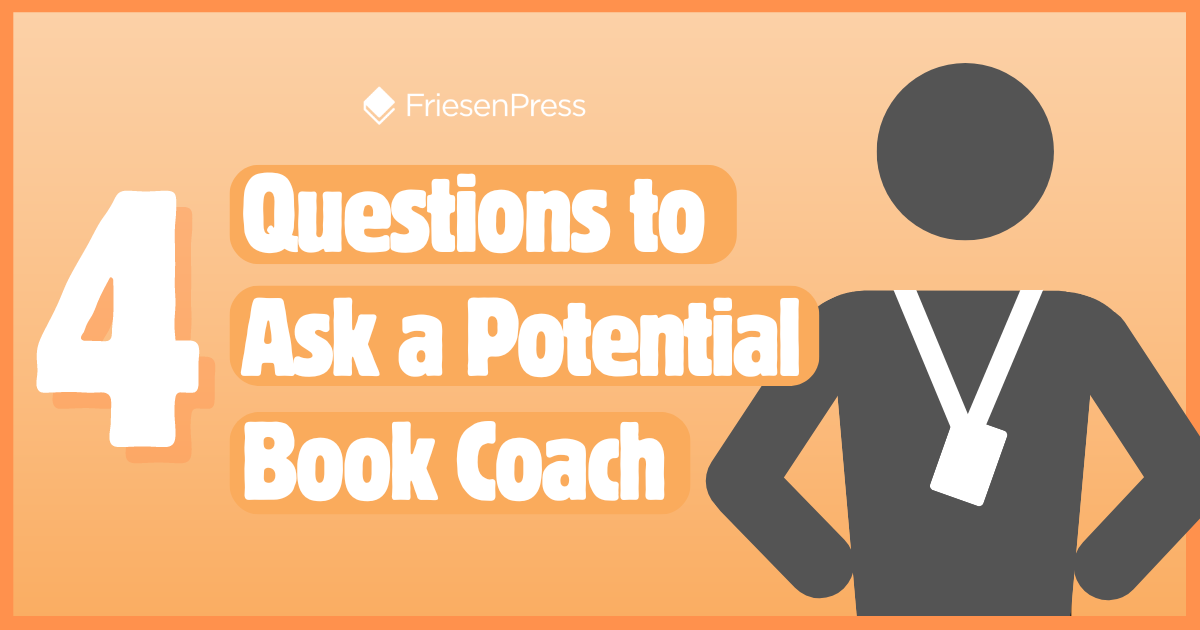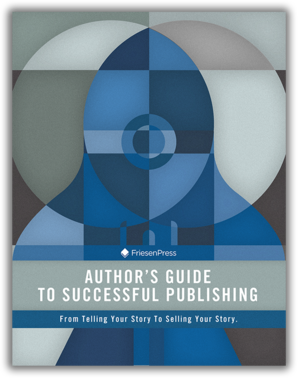4 Questions to Ask a Potential Book Coach
/Writing a book is one of the most difficult — and one of the loneliest — enterprises a creative person can undertake. Writers spend countless long hours enthroned before their computer screen, hoping the words flow down their arm and onto the digital page. You might even be eager to write but get waylaid by the uncertainty of how to actually embark upon your journey. And even experienced authors writing a memoir or other personal narrative find themselves stuck halfway through a book with lots of writing completed, but little sense of how to organize or finish it.
With numerous potential stopping points, many authors seek out book coaches to guide them on their journey. Writing a book is an intensely personal act, and sharing that process with a book coach can enable you to open up (and may even end up producing stronger work). After all, book coaches (like myself) possess the experience, the knowledge, and the skills necessary for bringing out a writer’s best.
But before you commit to the expense and vulnerability of sharing your creative world with a coach, you should make certain they’re a good fit for the book you’re writing. Just like authors themselves, book coaches have specialities and preferences so not every project will be a fit. By asking your prospective writing coach the five questions below, you’ll be well on your way towards choosing the right partner for your book.
1. How much do you cost and how long do you take?
I had a prospective client, Mary, who wanted her book written yesterday. It was easy to understand Mary’s point of view: she was a successful businesswoman with a career in accounting and financial planning. She was used to working in a fast-paced, results-oriented environment. She had a great story too — an intensely personal narrative about family, childhood trauma, and her career. It was the sort of story that doesn’t just flow down the arms — it burns itself onto the page.
Or at least, that’s how it began. By the time Mary contacted me, her writing had slowed to a trickle. When we met, Mary’s excitement was palpable. She knew she could get the writing done — she just needed some help. But Mary wanted her book written within a very short timeframe of only a few months. She asked me, “How much will this cost?” When I quoted her what I thought this would look like in terms of labour, based on my evaluation of her manuscript and earlier, similar projects on which I’d worked, she balked. The cost was too high, she said.
Now, this might sound like a disappointing anecdote for a book coach. But that’s far from the case: I was happy. It was far better to have this frank discussion about cost and timeline now, before we began working in earnest on her book. The biggest disappointments in publishing happen when there’s a mismatch between the author’s expectations and the author’s reality.
But thankfully, Mary had a firm idea of both her timeline and her budget before she entered into a conversation, which enabled us to refine the scope of the work she wanted help with and so keep within her budget. Before you work with a book coach, you need to follow Mary’s example and figure out exactly what you’re willing to spend, and how long you’d like your project to take. Be certain to inquire after the method your potential coach uses to charge for their services. Some coaches offer hourly rates; others offer package deals. Some might sell hours in blocks. Some even charge by the word count. Once you have that information, you need to ask your book coach — if they don’t ask you first — if they can meet your expectations about price and timeline.
Be clear and concise about your expectations with your potential coach. If they cannot meet them, then you’ll know right away they’re not a good fit. If they can meet those expectations, then you know you’ve got one of the foundations for a good working relationship covered.
2. Do you work in my genre?
There exists anywhere between 30 and 80 recognized book genres, depending on how you slice the overall literary pie. Authors writing in genres as diverse as young adult romance and academic analytical philosophy employ book coaches. But they probably don’t all hire the same coaches.
I’ve worked within a range of genres, including business memoirs, personal narratives, and fantasy novels. If an author approached me with a manuscript for a horror novel, or a popular history book, I could handle those without a problem. But if someone wanted help on a romance novel? Or a popular science book? Unless they had something rather narrowly focused that fit in my wheelhouse, there’s a good chance I’d end up suggesting they seek a different coach.
It’s not because I have a secret vendetta against romance novels or popular science, or against any of the other genres about which I know little. There is simply a finite amount of time in the day, and in order for a book coach to give you the sort of targeted, specific advice that you’ll need for your book, they need to be very familiar with the genre in which you’re working. That means they need to have read widely in the genre so that they know, and can advise you on, the popular tropes, the usual beats, and the usual expectations of the genre’s audience. Armed with that knowledge, your book coach can help you navigate the common pitfalls of the genre, steering you away from clichés and other problems, while simultaneously guiding you towards your truest, most unique voice.
It is in your best interests to ask this question early. This means you have to clarify your vision beforehand, however. You don’t need to pigeonhole your work into a hyper-specific micro-niche, of course. But you should have a strong idea of what tradition you’re working in, some other works in the same genre that inspire you, and which audience you’re writing to. Once you have that mapped out, you can make sure your book coach’s expertise matches your vision.
3. What is your coaching process?
All authors have their own writing process. Virginia Woolf bought a book on Friday, read it by Sunday, and wrote 1,500 words of her own by the following Wednesday. She did this every week for thirty years. Stephen King wakes up, eats breakfast, walks about three miles, then sits down for four hours and writes about 1,000 words. He does this every day (it used to be 2,000 words a day, but he’s slowed down as he’s aged). Famed classical poet Virgil is said to have written ten lines in the morning—and revised them down to two by the evening.
You don’t need to have a process like any of the above authors. The writing process is, like the book itself, unique to each author. Near-infinite permutations exist. But when you’re considering a book coach, you need to make an effort towards understanding your own writing process, because it will inform how exactly you work with the coach you select. Just like authors, coaches have their own processes and those processes will naturally work better with some authors than with others.
If you’re a 1,000 word-a-day writer like Stephen King, you’ll produce a book’s worth of writing within only a couple months. You’ll want a book coach who understands and is prepared for that level of output. Conversely, if you’re more of a Virgil, writing and revising and producing a smaller word count per day (or week, or month), then you may want a different sort of coach, one more suited to that measured pace.
Asking a coach what their process is can tell you a lot about how you will work together. And when in doubt, telling a coach what sort of writer you are can help them know how best to help you — or confirm whether their style can help you at all.
4: Will you be honest in your feedback?
This question is closely related to question 3. Receiving feedback on your writing is a difficult task. Many authors have stopped writing altogether just from the stress of hearing other people’s opinions on their manuscript. However, if you hire a book coach, then you need to be prepared to hear, or read, feedback on your writing. But it can be tempting — for both author and coach — to only offer the feedback you want to hear.
Positive feedback is necessary. If a coach only tears your work apart without providing potential solutions then they’re not a coach, they’re a critic (in which case stop paying them immediately and reach for the holy water). But there will be moments where you write something and it needs some work — in fact, this might happen for most of your writing. That’s entirely normal. The bulk of almost all writing projects is created in editing and revision. But it’s very difficult for the writer (especially a newer writer) to know exactly where and how they must revise. That’s the coach’s area of expertise.
Many times, you’ll read what the coach suggests and say, “Wow, that’s so right, I agree completely,” but other times, you’ll read a suggestion, frown, and say, “No, this is wrong.” You’ll push back on your coach. Sometimes, you’ll be right to do so and, through discussion, identify the true problem to be solved. But sometimes, you’ll be wrong about digging in your heels. And in those moments, your book coach will have to be able to give you the honest feedback you need. If they do not give you honest feedback, it will probably feel good — in the moment, at least. After all, in place of honest feedback you’ll probably receive some praise on your writing or capitulation to your ego, and few things feel better than that.
Yet when the reviews roll in for your published book (if you see any at all) and uniformly make the same complaint, you might wish your book coach had been more committed to offering you honest feedback. The book coach has a dual duty: to you and to your book. Most often, those two duties will align. But on the occasions where they do not, you want a coach who will prioritize the long-term success of the book.
These aren’t the only questions you should ask your book coach, of course. But they are some of the most important questions to ask — the founding pillars of your relationship with the coach, in other words. Asking, and answering, these questions won’t guarantee you a bestseller. But they might set you further down the path towards success.
Graham Wilcox is an author, a book coach, and the editor of an award-winning fiction magazine. He works as a coach and writer for Storyglu.com, a book coaching and ghostwriting firm that helps nonfiction authors write books readers can’t put down.









